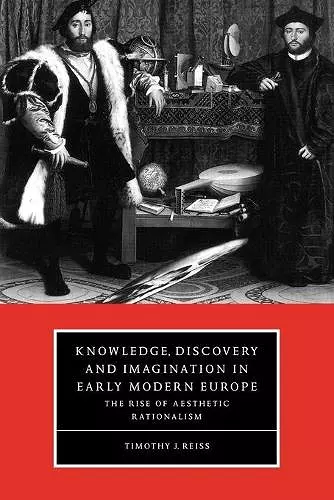Knowledge, Discovery and Imagination in Early Modern Europe
The Rise of Aesthetic Rationalism
Format:Paperback
Publisher:Cambridge University Press
Published:13th Mar '97
Currently unavailable, and unfortunately no date known when it will be back
This paperback is available in another edition too:
- Hardback£90.00was £90.00(9780521582216)

A new explanation for the substantial changes of thought that occurred in early modern Europe.
Timothy J. Reiss argues that the massive changes in thought in early modern Europe occurred, not because of a move from orality to print culture, but rather because the means and methods of discovery came to depend on the mathematical disciplines, including music, instead of the language arts.Recent explanations of changes in early modern European thought speak much of a move from orality and emphasis on language to print culture and a 'spatial' way of thinking. Timothy J. Reiss offers a more complex explanation for the massive changes that occurred. He describes how by the late fifteenth century the language arts of the trivium had come to seem useful only for communication, teaching and public debate, and how humanists turned to the mathematical arts of the quadrivium - including music - to enable new means and methods of discovery. Reiss goes on to argue that the new 'mathematical' ideal formed the basis of wide sociocultural renewal; he analyses Northern vernacular grammars, examines the work of French and Italian mathematicians, musicians and philosophers including Descartes, and censures such modern commonplaces as the supposed impact of print and 'spatial' thinking. He ends by exploring the broad impact of this 'mathematisation' of the Western imagination.
"...the book is extremely rich in its use of often unfamiliar and uncommon primary materials, and researchers will want it in their library collections." E.D. Hill, Choice
"...Reiss has offered an informative and stimulating examination of one continuous development in the intellectual culture of early modern Europe. It is a book well worth reading." Christopher S. Celenza, Sixteenth Century Journal
"[Reiss's] study signals rich historical connections yet to be explored." Gary Tomlinson, American Historical Review
ISBN: 9780521587952
Dimensions: 229mm x 152mm x 15mm
Weight: 390g
264 pages